Veel dank aan de makers voor het uitnodigen van een reflectieve dialoog over de rol van media in complexe conflicten.
#Medialogica #mediastudies #journalistiek #beeldvorming #democratie
Veel dank aan de makers voor het uitnodigen van een reflectieve dialoog over de rol van media in complexe conflicten.
#Medialogica #mediastudies #journalistiek #beeldvorming #democratie
Het vereist journalistieke moed om te vertragen, context te bieden en nuance te behouden – zeker als feiten en emoties door elkaar lopen, en de heersende elite luid roept.
24.12.2025 07:30 — 👍 2 🔁 0 💬 1 📌 0In het gesprek heb ik benadrukt hoe oorlogsjournalistiek in situaties van (gewelddadige) chaos en onzekerheid snel kan polariseren: redacties voelen enorme druk om direct te rapporteren, wat vaak leidt tot simplificaties die democratische debatruimte ondermijnen.
24.12.2025 07:30 — 👍 2 🔁 1 💬 1 📌 0
Zondag was ik te gast in Medialogica: “Een gitzwarte nacht” – een episode die de mediastorm rond de Amsterdamse Maccabi-wedstrijd en de beeldvorming daaromtrent onder de loep neemt.
@nieuws.nos.nl
As kids head back to school across Belgium today, I’m also stepping into a new classroom — but this time as Assistant Professor in Conflict Management at @ieseg.fr
Grateful and excited for the journey ahead.
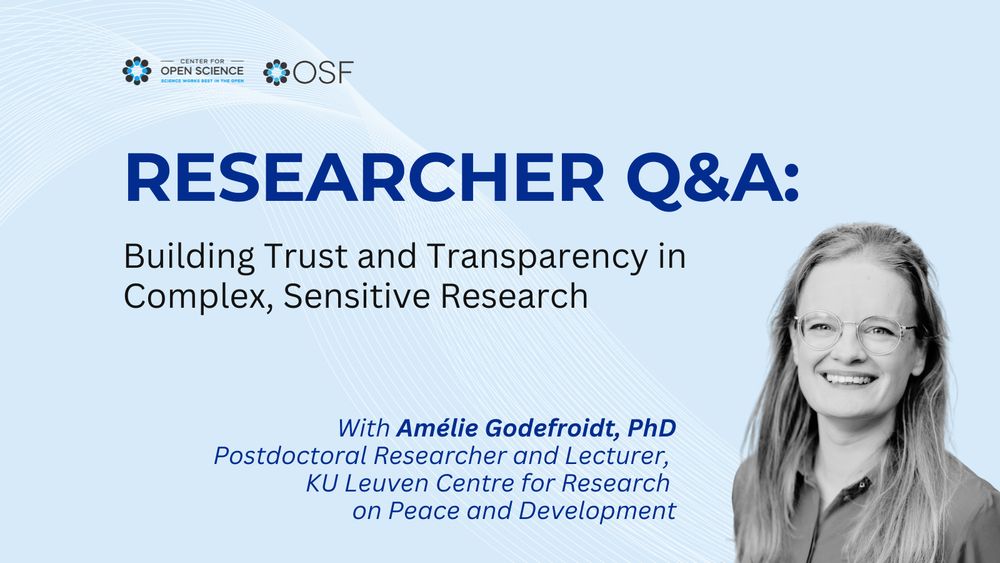
💡 Meet @ameliegodefroidt.bsky.social, Postdoc & Lecturer at KU Leuven. She studies public response to war & conflict, often working with sensitive, complex data. In our Q&A, she discusses her open science summer course & how transparency can strengthen trust & collaboration:
www.cos.io/blog/amél...
🎉 Long overdue announcement: I’m thrilled to join @ieseg.fr as Assistant Professor in Conflict Management!
Sad to be leaving @kuleuvenuniversity.bsky.social but excited to explore new intersections between conflict studies, international negotiation & organizational dynamics 🤝
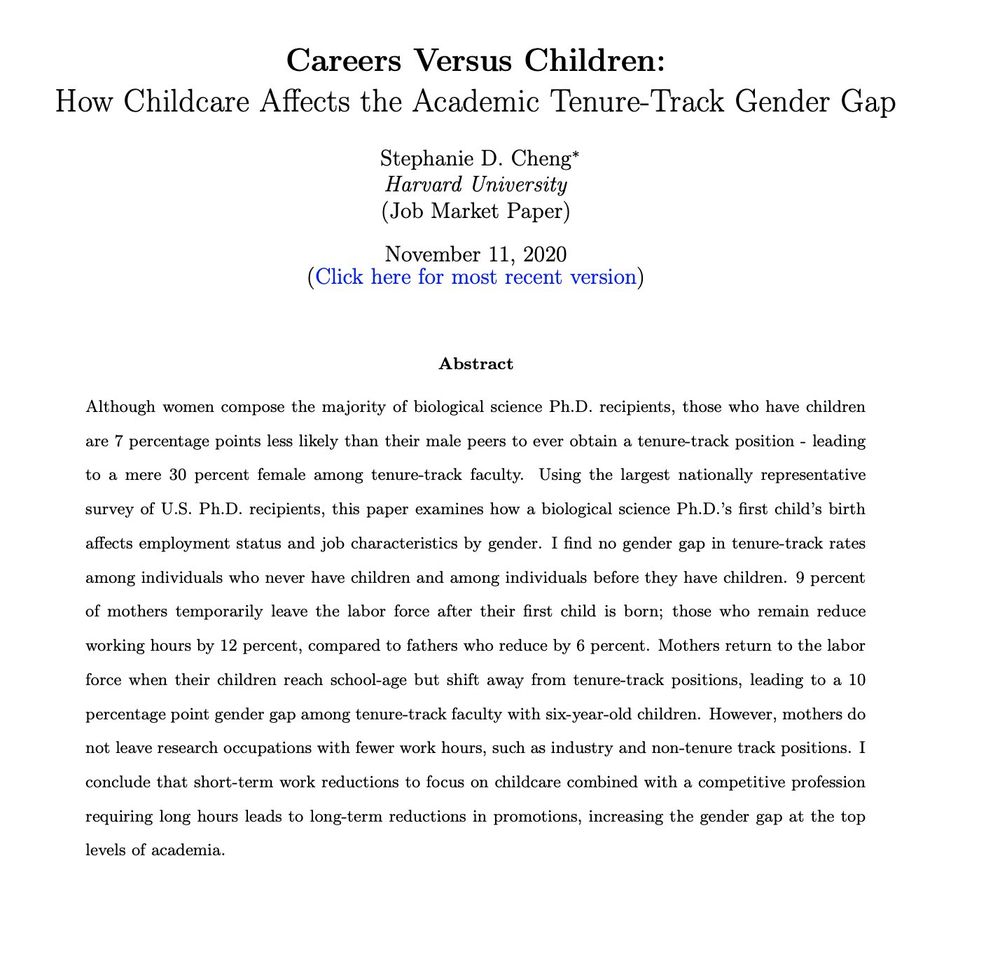
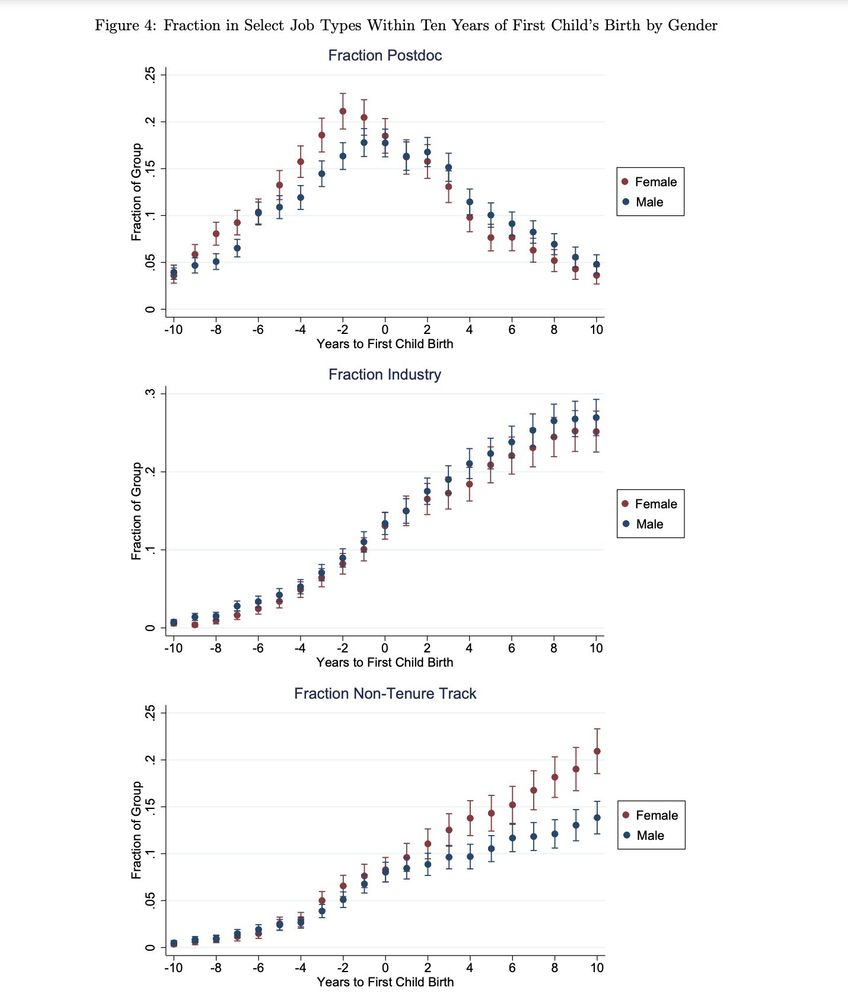
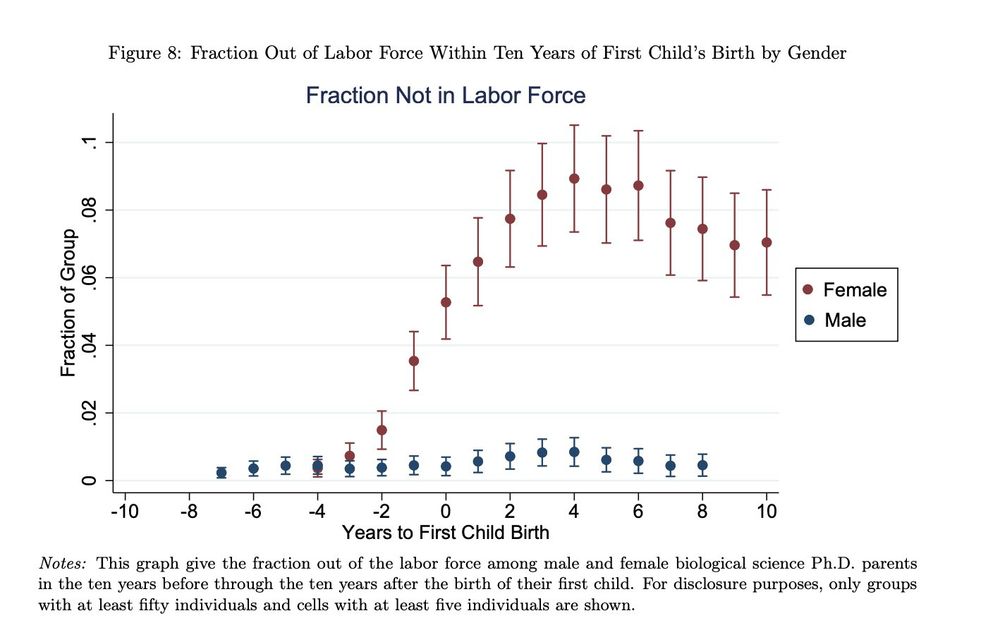
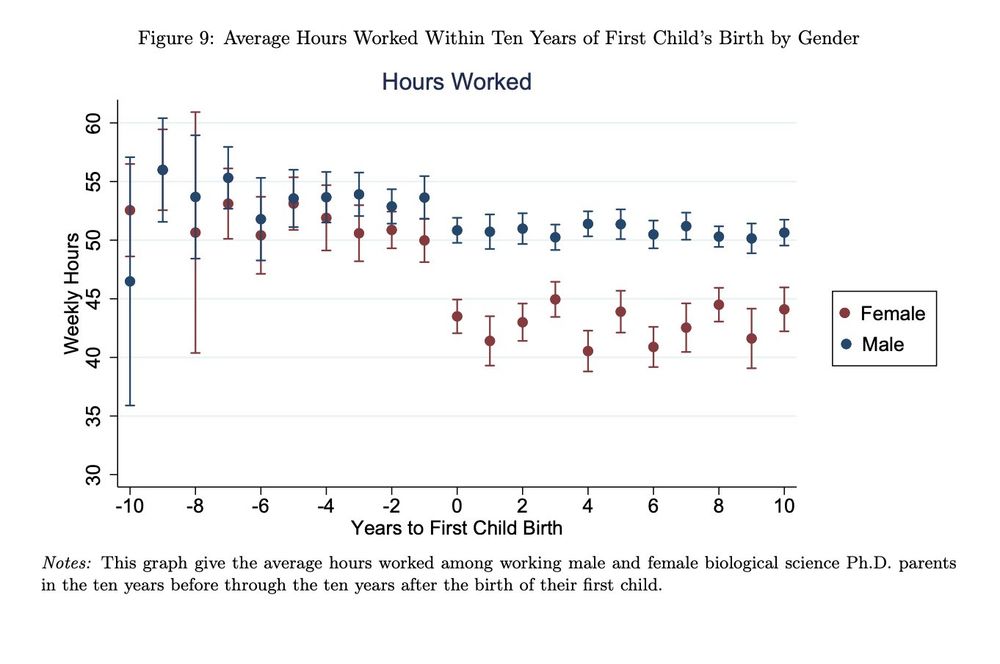
Female academics are much more affected by the birth of a child than are male academics.
Academic mothers are much more likely to...
◾temporarily leave the labor force
◾and, if they return, shift away from tenure-track positions.
scholar.harvard.edu/files/sdchen...
My dear friend and colleague @chrisdworschak.bsky.social is kicking off #NEPS2025, presenting fascinating work with @kmross.bsky.social on conflict forecasting using… music data! 🎶📈
“Rhythms to riot” is already setting the tone for a brilliant few days of peace science!
#conflictforecasting
Excited to be at the annual conference of the European Peace Scientists in sunny Barcelona! Looking forward to three days of inspiring research, new ideas, and great conversations on peace and conflict.
#PeaceScience #NEPS2025
Thanks, Elise! Happy to hear you learned a lot!
12.06.2025 11:23 — 👍 1 🔁 0 💬 0 📌 0No, I've missed it! Looks great. Thanks for sharing. I'll have a closer look at it later this week.
10.06.2025 10:38 — 👍 1 🔁 0 💬 0 📌 0
Please do so! The FORTT materials were truly inspiring for creating this course, so always happy to support others as well.
I’ve uploaded everything to @cos.io, and you can also reach me at amelie.godefroidt@kuleuven.be if needed!
osf.io/s8mxd/files/...
As promised: I’ve just uploaded all course materials of the Open Science in Social Sciences summer school on @cos.io:
osf.io/s8mxd/?
🚀 Feel free to explore, reuse, and share (under CC-BY-NC-SA-4.0 license).
#OpenScience @forrt.bsky.social
Btw: after a well-deserved long weekend, I’ll be sharing all course materials from the Open Science in the Social Sciences summer school @cos.io !
06.06.2025 15:40 — 👍 4 🔁 0 💬 1 📌 1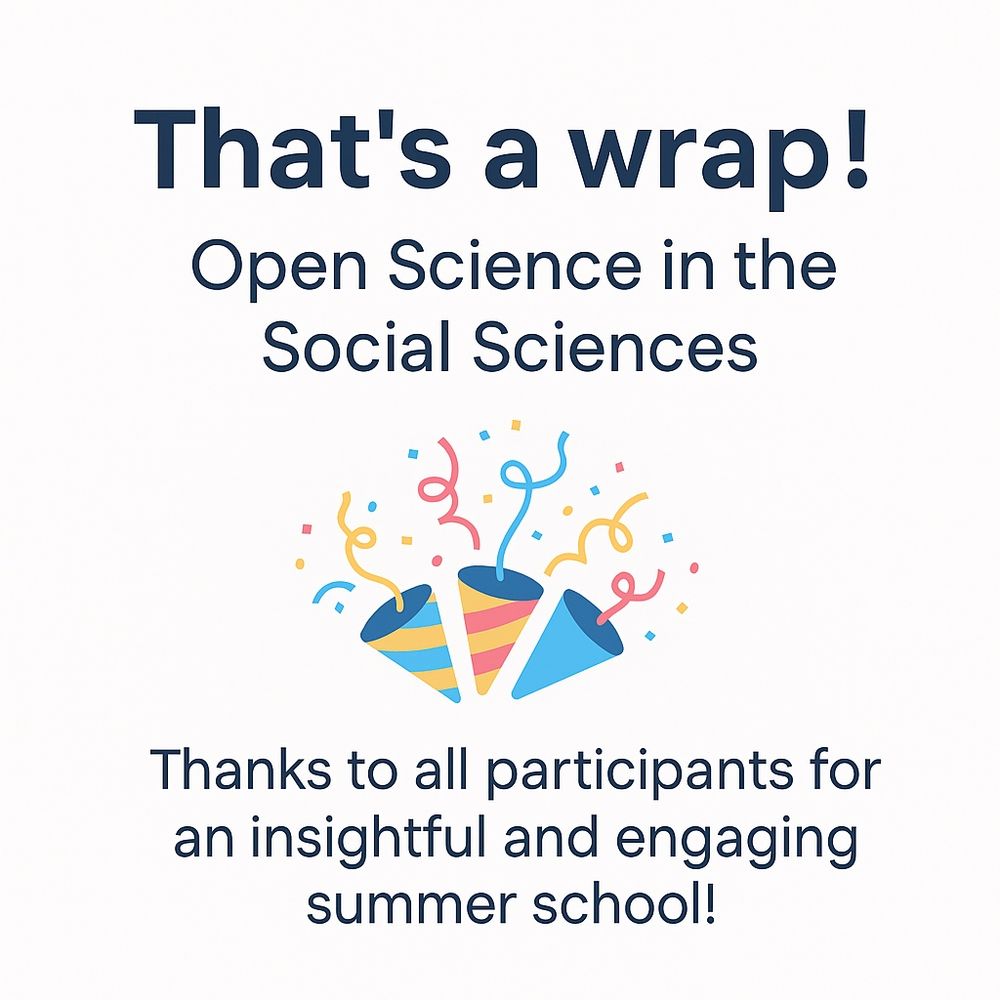
🎉 That’s a wrap!
Four days of deep dives into #OpenScience, #preregistration, #replication, #reproducibility, #multiverse, & more—applied to the social sciences.
Huge thanks to all participants for the energy, insights & thoughtful questions!
@ugentopenscience.bsky.social @gasparugent.bsky.social
🗣️ Fourth and final stop: Open Peer Review
We debated:
✍️ Signed reviews
🧾 Public reports
💬 Community commenting
✅ Platforms like @pubpeer.com @F1000Research & @publons
#OpenPeerReview
🔐 Third stop: how open can your data be under GDPR?
Enter:
✅ FAIR principles
✅ Personal data, special categories of data
✅ Anonymization vs. Pseudonymization
✅ Consent, licensing, & DPO support
More info: www.kuleuven.be/rdm/en/guida...
#FAIRdata #DataSharing #OpenData
💻 Second stop: #rMarkdown
📝 YAML -> Code chunks -> text -> Knit!
🔁 We did various exercises to knit dynamic, reproducible reports (HTML, pdf, word)
🛠️ Bonus: it’s the perfect gateway to @quarto.org
🔗 rmarkdown.rstudio.com/authoring_qu...
#rStats
🌌 First stop: Multiverse Analysis
We explored how analytic decisions shape results—and why reporting just one is like publishing from a parallel universe.
📚 Steegen et al. (2016): doi.org/10.1177/1745...
📚 Simonsohn et al. (2020): www.nature.com/articles/s41...
🔗 specr: masurp.github.io/specr/
🚀 Day 4 of our #OpenScienceInSocSci summer school @gasparugent.bsky.social @ugentopenscience.bsky.social wrapped up with new tools, big questions & practical skills.
Here’s your (final) recap thread 🧵
#OpenScience #PhDlife #Reproducibility

We are reviewing the current state of scientific publishing, and we want to hear from researchers on their perceptions of publishing in the current context and how it might develop in future. Complete our short survey now:
04.06.2025 16:59 — 👍 41 🔁 55 💬 6 📌 1
🔥 Big day ahead at the #OpenScience summer school!
On the menu:
💻 Making your research reproducible with @rmarkdown.bsky.social & @quarto.org
🔐 Balancing Open Science with Data Protection
🧐 What’s the deal with Open Peer Review?
🌐 A quick dive into Multiverse Analysis
We ended with a #pHackathon 🎯
Students were challenged to “find significance” in a fake dataset using researcher degrees of freedom 😅 shinyapps.org/apps/p-hacker/
Key lesson: flexibility isn't bad—but without transparency, it’s dangerous.
2️⃣ Smart data sharing: as open as possible, as closed as necessary!
3️⃣ Reproducible reporting with @rmarkdown.bsky.social n & @quarto.org
4️⃣ Built better replication packages with solid README files, transparent code, and full workflows. social-science-data-editors.github.io/template_REA...
1️⃣ Consistency checker:
Want cleaner science? Use these tools:
✔️ GRIM test → check if reported means are possible
✔️ shinyapps.org/apps/p-check... → spot wrong p-values
✔️ michelenuijten.shinyapps.io/statcheck-web/ → scan entire papers for wrong p-values
🧰 Beyond (a priori!) power analysis, students got 5 more tools for their repro toolbox:
1️⃣ Consistency checkers (GRIM, p-checker, statcheck)
2️⃣ Smart data sharing (more tomorrow!)
3️⃣ Reproducible reporting (more tomorrow!)
4️⃣ Crafting solid replication packages
5️⃣ #ManyLabs5 on quality > prereg
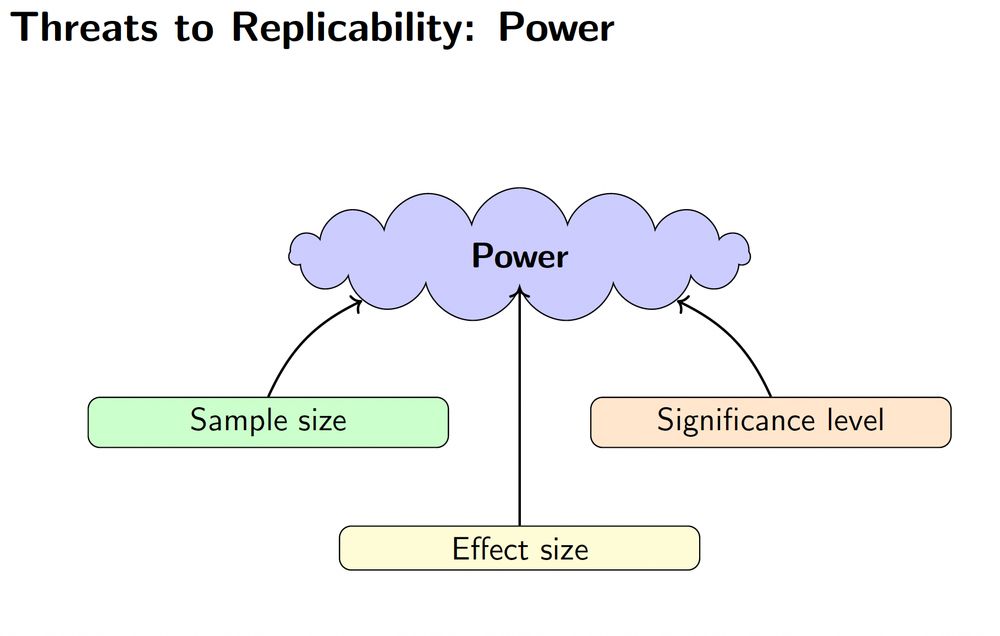
We’d tackled HARKing & p-hacking—but what about statistical power? 🧠
We broke down how sample size, effect size & alpha shape our ability to detect real effects.
Median power in poli sci = 10% 😬 (Arel-Bundock et al. 2024). To solve this, we introduced:
🧮 G*Power and 📦 pwr in R (recommended)
First up: two terms that often get mixed up 👇
🔁 Reproducibility = same data, same code
📦 Replicability = new data, same design
We unpacked these (and more) with help from Brodeur et al. (2024):
📖 www.iza.org/publications...
🔥 Pro tip: join a #Replication Game via @i4replication.bsky.social
🔍 Day 3 of our #OpenScience summer school @gasparugent.bsky.social @ugentopenscience.bsky.social was all about:
✨ Reproducibility & Replicability—including a primer on power!
🧰 Expanding our **Reproducibility Toolbox**—beyond preregistration
😈 A cheeky #pHackathon
Recap below 🧵
#Reproducibility